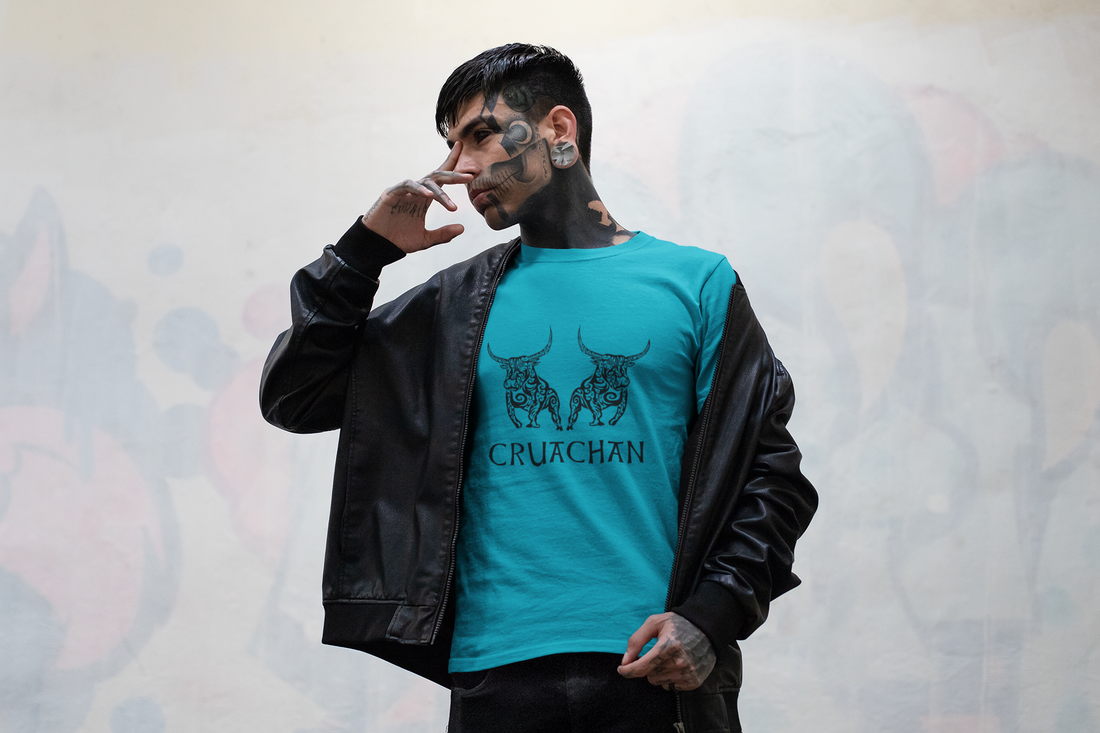The Ulster cycle of Ireland's mythology holds one of the most widely known epic sagas of ancient Ireland, an Táin Bó Cúailnge, or 'the Cattle Raid of Cooley'. This tale brings Kings, Queens, heroes and entire provinces into conflict, but right at its core is a rivalry older than many would know... the rivalry of the two great bulls themselves.
To know the true depth of this conflict we need to go back before the time of Queen Medb and King Conchobar, to an older era when magic was a lot more common in the land of Ireland.
In a tale known as the Quarrel of the Two Swineherds we find the true roots of rivalry and - as is so often the case - it starts with a friendship. Friuch and Rucht respectively served the chieftains of Munster and Connacht. They each used their vast magical and poetic talents in a position of high honour within their tribes, guarding the wealth of each chieftain. That wealth was their herds of swine.
Every day Friuch and Rucht would bring the herds out to the lands about to graze and grow fat upon the rich bounty of Ireland. Often the two would meet upon the boarders of the provinces, allowing the herds to mingle and freely graze the lands of each province, whilst the swineherds spent the time in pleasant companionship.
Unfortunately their friendship would not last.The chieftains of their tribes were not best pleased with the casual bond of the two, and sought a way to bring them asunder.
One day it was noted that one of the herds contained slightly larger swine than the other on account of their grazing being more fulfilling. Fruich of Munster decided to play a prank on Rucht, and using his power with words he cast a spell on the swine of Connacht that they would grow thin no matter how much they ate.
When Rucht returned home with his skinny herd, his people mocked him. Given his awareness of Friuch's talent, Rucht knew it could only have been him and so performed the same feat on the swine of Munster. This time it was Fruich who returned to scorn and mocking words and what had started as a prank became something a lot worse.
Both poets were cast from their roles of service to their tribe and their chieftains. Each knew that the other was the only person in Ireland who was equal to their skill with the power of words, and so they sought each other in conflict.
Yet this would be no battle of weapons. This was a battle of words, and the magics that they controlled. The pair transformed themselves time and again shifting their shape for two years at a time, to try over come the other.
First is was ancient birds of the air, then beasts of the water. Then stags of the forests wrecking and ruining each others territory. Next they took the form of young fian warriors roving and reeving in the wilds of Ireland, then phantom spirits, great dragon-like worms, and finally their fighting took them apart from each other as 'durb' or small water insects. One fell into a well in Ulster and the other a well in Connacht, there each was consumed by a cow.
As is the way of ancient Irish folklore, consuming an Otherworldly bug could cause pregnancy, and indeed this is the case for Friuch and Rucht were eventually reborn as the Fionnbheannach, the white bull of Connacht, and the Donn Cuailnge, the brown bull of Ulster.
As the battles of the epic cattle raid raged across the land of Ireland these two ancient rivals sought each other out, for their decades long rivalry would allow them no rest. At Cruachán, the ancestral seat of Connacht royalty and home of Queen Medb, they at last met in battle.
At Rath na dTairbh, the 'ringfort of the bulls', the two great beasts battled. They charged and kicked, gored and bit for the length of a day and a night until at last the Donn Cuailnge impaled the Fionnbheannach upon his horns - slaying him. The brown bull then returned to Ulster, where he died of his own wounds.
The tale of the bulls is one of rivalry and conflict, yet there is more to learn when we look deeper. It shows us the power possessed of those who know the true meaning of words. It teaches us what can happen when a joke is not 'just a joke', and it shows that a conflict between equals can never end in anything other than ruin for both.
Are you interested in the Bulls of Cruachán?
